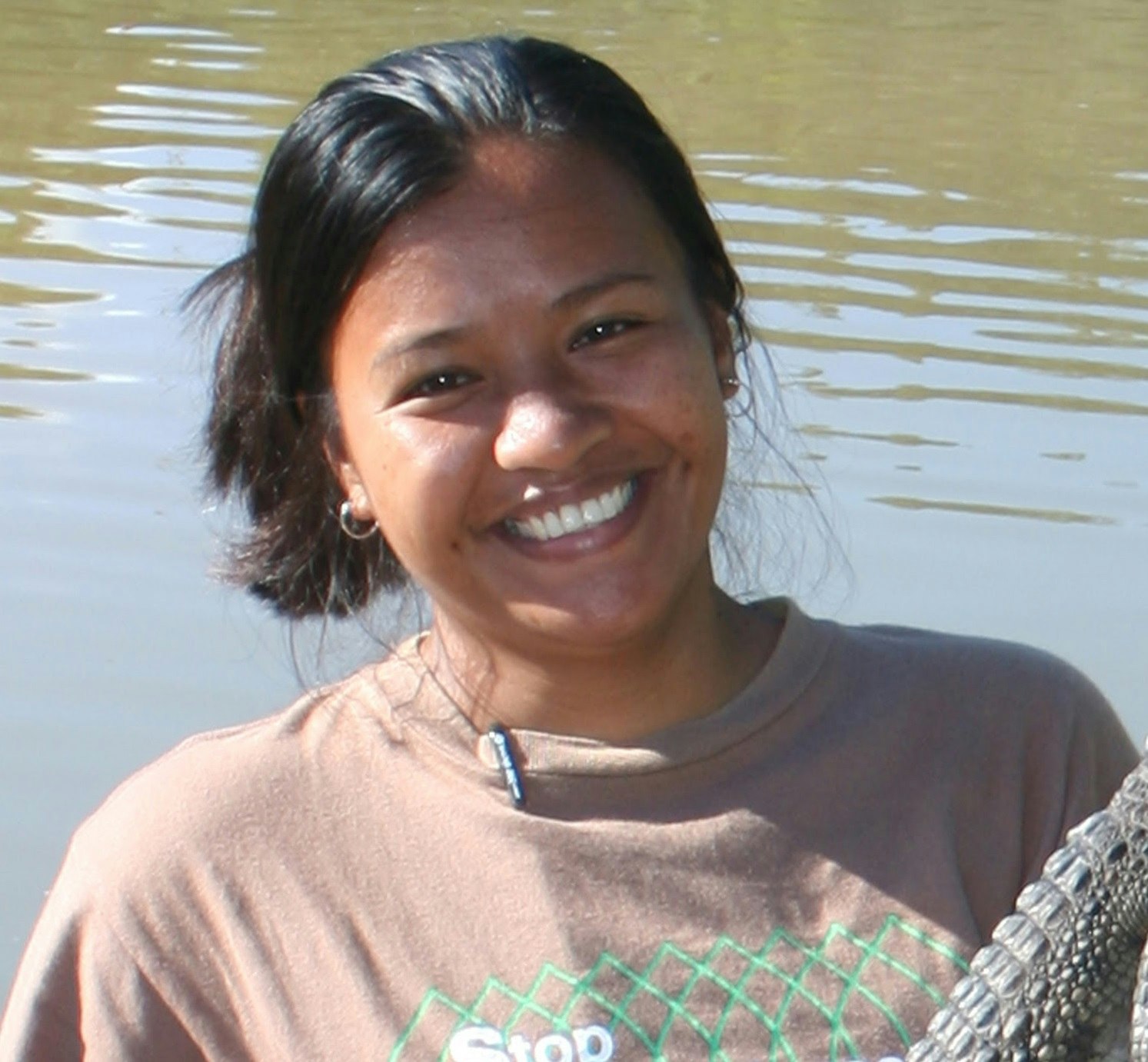Saving the World’s rare Philippine crocodile – Winner of the Whitley Award donated by WWF-UK
Misunderstood
The endemic and critically endangered Philippine crocodile is one of the rarest animals on the planet. Although respected by indigenous communities, the crocodiles have an image problem with outsiders. To many they are viewed as man-eaters and are even associated with corrupt politicians! In reality, the crocodile is small and will not attack people unless provoked.

On the brink
Previously widely distributed throughout the Philippines, this species is now only found in Northern Luzon and South-western Mindanao Islands. Occurring mostly outside of protected areas, crocodiles are threatened by hunting and habitat loss. Hatchling survival is also very low and there are not enough unspoilt water bodies for juvenile crocodiles to grow up in safety.

Vital support
Thanks to Tess and her team at Mabuwaya Foundation, community support for crocodile and wetland conservation on Luzon Island has already been mobilised with considerable success. Four community managed crocodile sanctuaries have been established and the crocodile population has increased from just 12 in 2001 to more than 100 in 2012. The number of crocodile killings by humans has also decreased from thirteen in 1998 to one in 2013.

Her project aims to:
- Increase the Philippine crocodile population through nest protection, head-starting and release of hatchling crocodiles, and habitat restoration.
- Create two new crocodile sanctuaries and build capacity for their protection.
- Engage local communities in conservation through education and awareness campaigns.
Why it matters:
- Fewer than 100 non-hatchling Philippine crocodiles remain in the wild with only 10 adults occurring in Luzon Island.
- Without urgent conservation action the Philippine crocodile will become extinct.
- The species occurs nowhere else on Earth.
“The people we work with want to protect the crocodiles. They don’t fear the animal anymore but are very proud of it.”
2015 PROJECT UPDATE
Tess’s work with the world’s most endangered crocodilian has been very successful. Crocodile numbers are increasing and the local communities have requested support to improve facilities for the crocodiles – a great sign that they are happy to live with and encourage the species in the wild. Community monitors have been trained and school groups have also been targeted to raise awareness and pride in the Critically Endangered Philippine crocodile.
With WFN’s support Tess and her team have:
- Encouraged establishment of 4 new community-based Philippine crocodile sanctuaries, doubling the number of sanctuaries from 4 in 2014 to 8 in 2015.
- Counted the highest number of adult crocodile in the wild since the Mabuwaya crocodile conservation project started in 2003.
- Released 27 head-started juvenile crocodiles into the wild in 2014. A total of 1,279 people visited the Philippine crocodile rearing station.
- Discovered 4 new nests that are now being monitored. Provided training for 70 community and local government partners in environmental law enforcement and monitoring to safe guard nests.
- Conducted community consultations; organized student theatre shows; distributed posters and calendars were distributed and information materials about crocodiles and school supplies were provided to 4,563 school children to engage people with conservation.
- Published an article about the project in the In-flight Smile magazine, with the potential to reach 17 million passengers.
2020 CONTINUATION FUNDING
Project: Community Conservation Areas in Northeast Luzon to benefit the Philippines’ people and wildlife
Continuation Funding Award: £70,000 over 2 years
The Northern Sierra Madre mountain range is one of the last wildernesses in the Philippines, boasting the country’s largest contiguous forest and unspoilt freshwater wetlands. Conservation of these habitats is crucial to both the survival of their threatened endemic species – such as the Philippine crocodile and Isabela Oriole – and also the wellbeing of those communities living along their fringes, including the indigenous Agta and Kalinga people. Illegal logging, pollution, infrastructure and large-scale tourism development all threaten their existence. Exacerbated by the pandemic, farmers are also recouping losses by increasing cultivated areas, and hunters face more demand for bushmeat to both eat and trade.
Tess and her team will apply a holistic approach embedded in the community. With Continuation Funding they aim to raise awareness and increase knowledge about these species and the importance of biodiversity among 2,000 households and 4,000 children. They will implement income generating, nature-based livelihoods such as agroforestry, sustainable harvesting and small-scale ecotourism, which, in turn, will incentivise communities to manage, protect and monitor 5 community conservation areas. In these areas they aim to reduce illegal activities by at least 50% and increase the population of each focal species by 10%.



